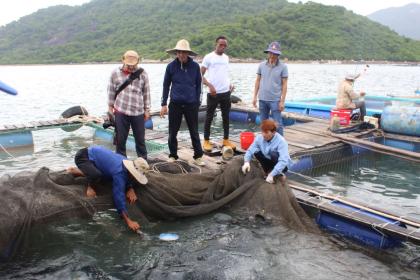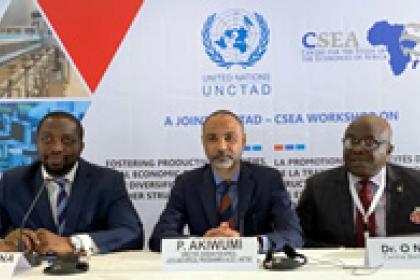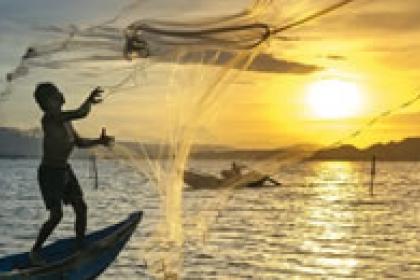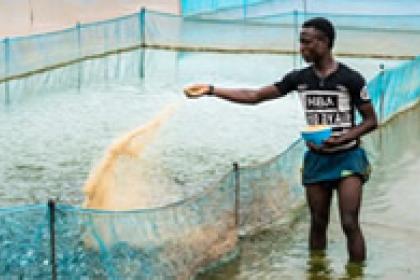UNCTAD Centers of Excellence serve as network hubs for capacity building in the African and Asian regions.
The Centers of Excellence provide opportunities for policy practitioners and stakeholders from the LDCs and other developing economies to benefit from targeted and practical training on trade and development-related themes.
Training seminars held at the Centers of Excellence provide opportunities for countries to share their experiences and good practices with other member States and international experts.
UNCTAD Centers of Excellence have established expertise in the fisheries and aquaculture sectors, and in the design of policies and strategies to promote export diversification, and enhanced market access for LDCs.
- The Centers of Excellence
-
Centre for the Study of the Economies of Africa (CSEA)
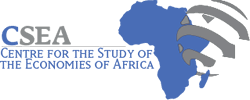
The Centre for the Study of the Economies of Africa (CSEA) is a non-profit think tank that conducts independent, high quality applied research on economic policy issues in Nigeria and the rest of Africa.
CSEA was established in 2008 by Dr. Ngozi Okonjo-Iweala, former Managing Director of the World Bank, and also Nigeria’s former Minister of Finance. CSEA's mission is to enhance development outcomes in Africa through evidence-based research.
Website: cseaafrica.org
Nha Trang University of Viet Nam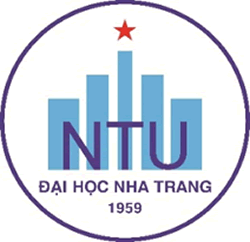
Nha Trang University (NTU) is one of the largest institutions of higher education in Viet Nam. NTU was established as a Faculty of Fisheries in 1959, renamed as the University of Marine Products in 1976 and became the Nha Trang University of Viet Nam in 2006.
The courses developed at this CoE will foster an exchange of experiences, best practices and knowledge among policymakers and experts from several countries, particularly in Asia and the Pacific, in order to build their capacity to better harness the development potential of the fisheries and aquaculture sectors, drawing on the Vietnamese experience.
This includes efforts to meet international food safety and quality standards in markets in developed countries.
Website: en.ntu.edu.vn
Video: bit.ly/ntu-edu-vnThe Royal Tropical Institute
The Royal Tropical Institute (KIT) is a leading knowledge and expertise organization for international and intercultural cooperation in the Netherlands, with a mandate to improve health, ensure equitable social-economic and sustainable development as well as promote intercultural cooperation with partners worldwide.
KIT will support the training at the Centers of Excellence, including through the development of course module on the role of social standards in fisheries sector development including gender specific and labor related standards.
Website: www.kit.nl
The European Unviesity Institute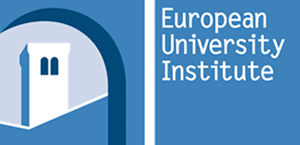
The European University Institute (EUI) is an international research center in Florence, Italy.UNCTAD and the Global Governance Programme of the European University Institute (GGP EUI) have experience in assisting least developed countries in the areas of Duty Free and Quota Free (DFQF), drafting and negotiating Rules of Origin for LDCs, promoting and protecting traditional products through intellectual property rights such as Geographical Indications, designing and implementing trade facilitation initiatives, and more generally in integrating LDCs into the global value chains.
Website: www.eui.eu
The Ministry of Ocean Economy, Marine Resources, Fishing and Shipping of the Republic of Mauritius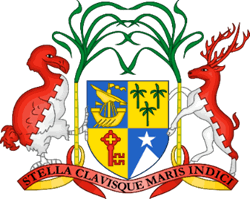 Republic of Mauritius
Republic of MauritiusThe Ministry of Ocean Economy, Marine Resources, Fishing and Shipping of the Republic of Mauritius aims to make the ocean economy an important development pillar in order to sustain economic diversification, job creation and wealth generation, while sustainably managing the country’s natural resources.
The courses developed at this CoE will foster an exchange of experiences, best practices and knowledge among policymakers and experts from several countries, particularly in Africa, in order to build their capacity to better harness the development potential of the fisheries and aquaculture sectors, drawing on the Mauritian experience.
This also includes efforts to meet international food safety and quality standards in markets in developed countries.
Website: oceaneconomy.govmu.org



